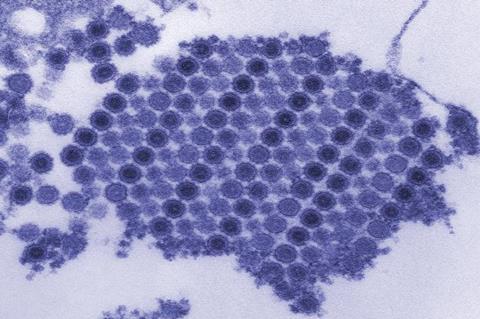Researchers have long known that the body’s immune system plays a critical role in fighting off chikungunya virus (CHIKV), but how exactly immune cells coordinate their response has been a mystery—until now.

In a new study led by A*STAR Infectious Diseases Labs (A*STAR ID Labs), researchers discovered that synergistic interactions between immune cells drive CHIKV disease. This finding sheds light on how immune cells communicate during CHIKV infection, potentially leading to better treatment strategies.
The study, “Crosstalk between CD64+MHCII+ macrophages and CD4+ T cells drives joint pathology during chikungunya”, was published in EMBO Molecular Medicine, on 8 Feb 2024.
Neglected tropical disease
Chikungunya fever (CHIKF) is a neglected tropical disease caused by infection with CHIKV that is transmitted by mosquitoes Aedes aegypti and Aedes albopictus, which also transmit the dengue virus. Infection is characterised by common symptoms such as muscle pains, joint pains, fever and rash. In some patients, chronic joint pain is experienced.
Previously, Singapore experienced two major CHIKV outbreaks, between 2008 to 2009 and 2013 to 2014, infecting more than 2,000 people. Specifically, the introduction of a mutant viral strain in early 2008 resulted in the rapid spread to suburban and rural areas where Aedes albopictus was the primary vector. Thereafter, sporadic cases of CHIKV infections are still being reported.
In Southeast Asia, CHIKF remains one of the most significant infection problems. Much of the current chikungunya epidemic in Southeast Asia is caused by the emergence of a virus strain that originated in Africa and spread to Southeast Asia. With this high infection rate, the risk of potential new strains emerging and circulating globally remains a possibility. CHIKV is listed as one of the priority pathogens by the Coalition for Epidemic Preparedness Innovation (CEPI).
No specific treatments
Currently, there are no specific treatments for CHIKV infections. As such, it is of utmost importance that novel druggable targets be identified for the development of novel host-directed immunotherapies.
In an earlier study led by Prof Lisa Ng, Executive Director of A*STAR ID Labs, a pre-clinical model was developed that allows researchers to study the viral disease.
In this new study co-led by Prof Lisa Ng and Dr Fok-Moon Lum, the same pre-clinical model was used to demonstrate the macrophages as another key player of the disease pathology. The study further demonstrated that macrophage populations interacted with the CD4 T-lymphocytes and their functions were dependent on the immune mediators secreted by the CD4 T-lymphocytes.
By uncovering specific immune pathways involved, scientists and clinicians are one step closer to discovering improved therapies to alleviate the symptoms and severity of CHIKV infection. Such host-based therapies can also provide a complementary approach to combat the infection in immunocompromised individuals, who may not respond well to the CHIKV vaccine.
Combating the virus
Additionally, there have been other studies examining the role of other immune subsets during CHIKV infection. With a comprehensive understanding of the full immunology behind CHIKV infection, scientists can be better equipped to combat the virus during an outbreak.
Dr Fok-Moon Lum, Investigator at A*STAR ID Labs and co-lead of this study said, “In humans, both CD4+ T lymphocytes and macrophages have been found in tissue samples from joints and muscles of patients. Here, using of the pre-clinical models of CHIKV infection, we demonstrated the synergistic interactions between these cells in driving CHIKV-induced joint inflammation. This breakthrough finding allows us to better understand immune cell interplay during inflammatory viral diseases and opens new avenues for the innovative development of anti-CHIKV drug targeting macrophages as an alternative therapeutic target.”
Prof Lisa Ng, Executive Director of the A*STAR ID Labs and co-lead of this study added, “Arboviruses, such as CHIKV, remain as major public health threats especially in the tropical and sub-tropical regions. Here, we look at how the host immune system participates in CHIKV pathogenesis, providing important insights that may help researchers to better understand other arboviruses and develop more efficacious immunotherapies. This is also part of an on-going effort at the A*STAR ID Labs in pandemic preparedness.”
Importantly, this research sheds new light on the disease development of CHIKV, and offers new directions for the future development of novel and effective anti-CHIKV immunotherapies.







No comments yet